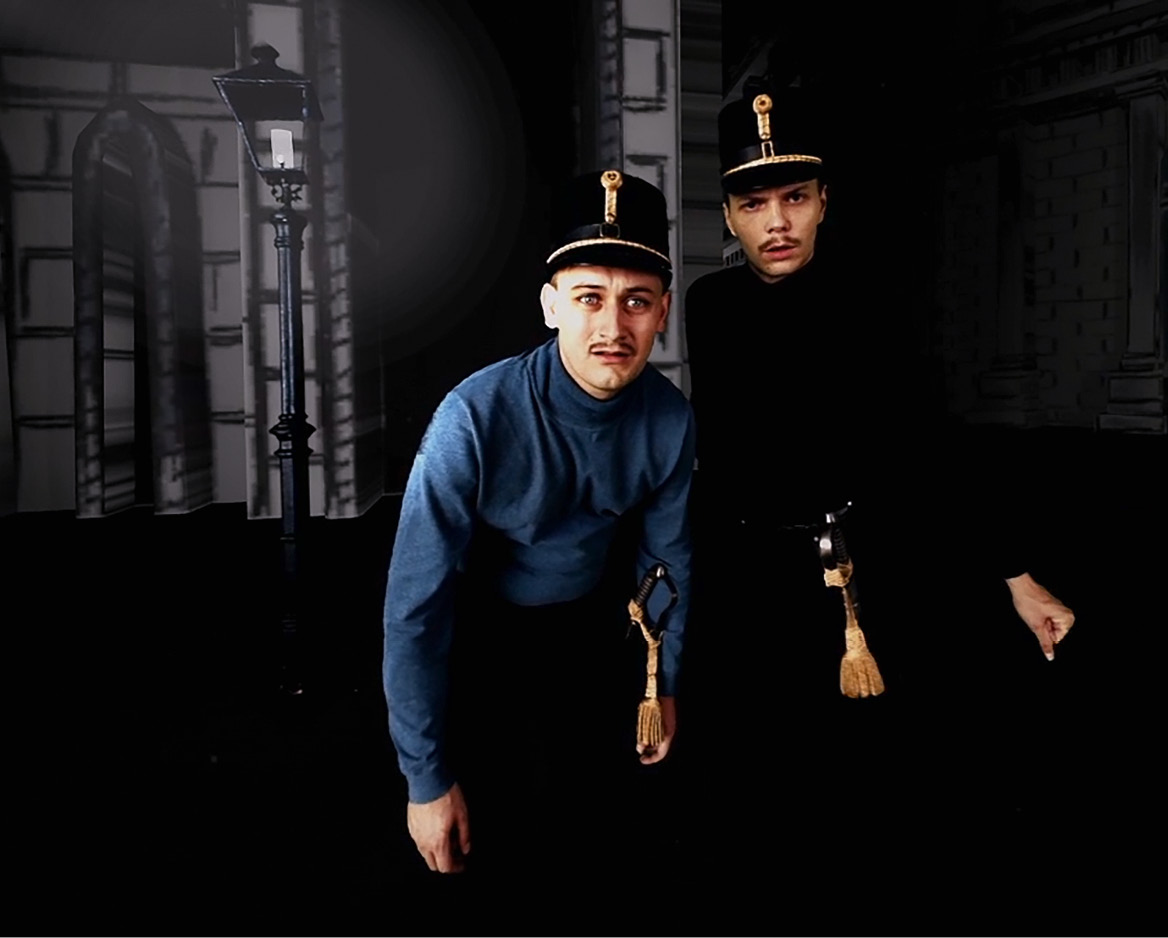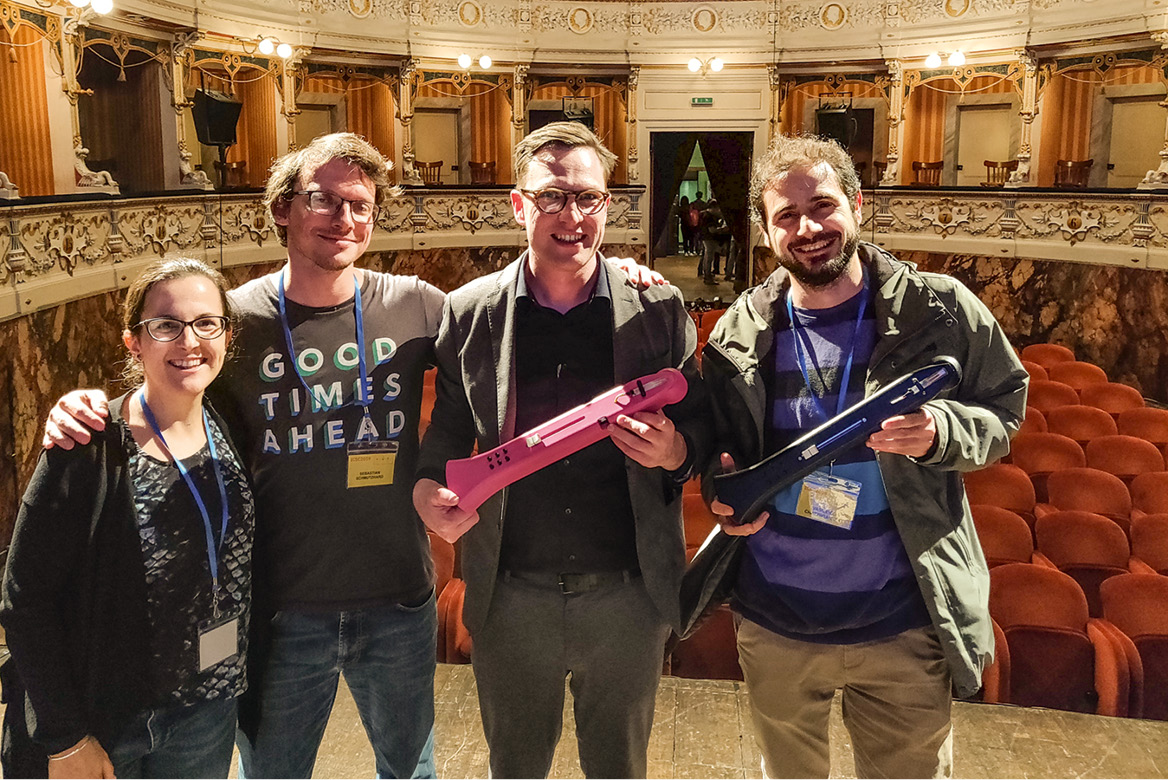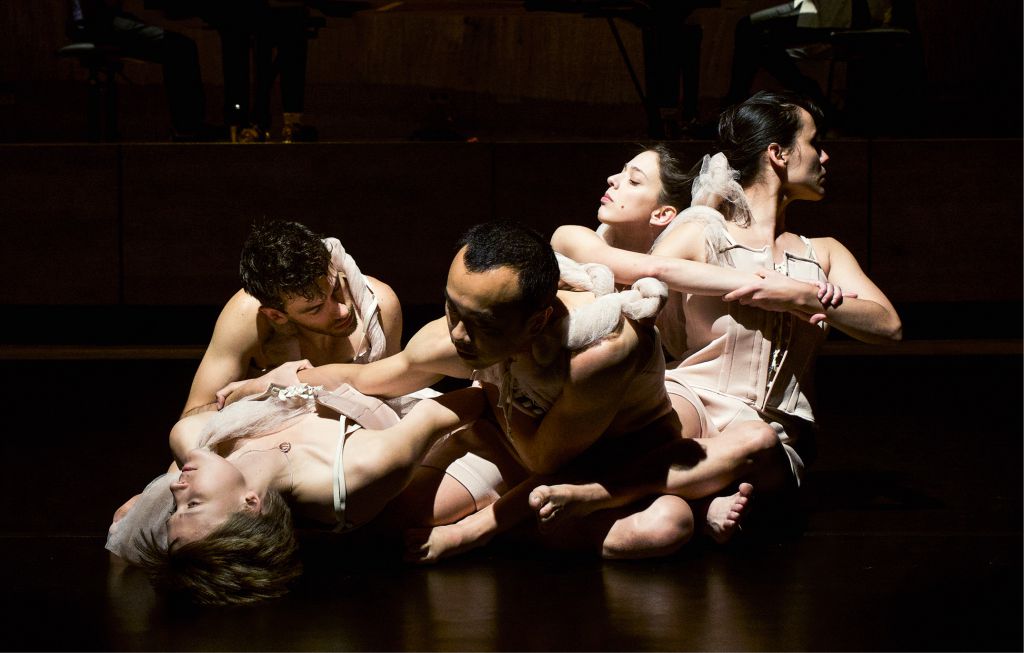2018 wurde an der mdw erstmals eine interne Förderung für Pilotprojekte im Bereich der künstlerischen Forschung ausgeschrieben. Nun ist es Zeit, ein Zwischenresümee zu ziehen.
Ziel des Calls war die Weiterentwicklung von Praktiken, Methoden und Diskursen der künstlerischen Forschung im Kontext der an der mdw vertretenen künstlerischen Felder und Disziplinen. Neun vorwiegend transdisziplinäre und kollaborative Projekte im Bereich Artistic Research konnten gefördert werden, und einige der Teams stellten bereits Drittmittelanträge im Rahmen des PEEK-Programms des Fonds zur Förderung der wissenschaftlichen Forschung (FWF). Die Projekte wurden aufgrund ihrer innovativen Forschungsfragen und einer entsprechend ausgewiesenen Methode aus über 20 Einreichungen ausgewählt, wobei die künstlerische Praxis einen zentralen Anteil am Forschungsprozess haben sollte. Neben der Drittmittelantragsstellung war ein weiteres Ziel des Pilot Calls die Dissemination der Ergebnisse anhand öffentlicher Aufführungen, Ausstellungen sowie Publikationen, z. B. im Research Catalogue. Der Research Catalogue ist eine Online-Datenbank, die künstlerische Forschungen sammelt, archiviert, veröffentlicht und ausstellt, betrieben von der Society of Artistic Research (SAR), deren Mitglied die mdw ist. So sollte das aktuell durch die Ringvorlesung Knowing in Performing, die laufenden PEEK-Projekte Rotting Sounds und Creative (Mis)understandings sowie die Vorbereitung des künstlerischen Doktorats auf vielfältige Weise in Entwicklung begriffene Feld der künstlerischen Forschung eine weitere Intensivierung und Weiterentwicklung erfahren.

„Ich habe mir kurz gedacht, ob ich manche eurer Fragen körperlich umsetzen, also mit Bewegung beantworten soll.“ Ein Satz aus einem gefilmten „Intra-View“, gesprochen von der Performerin Gabri Einsiedl, veröffentlicht im Research Catalogue von Adelheid Mers und Doris Ingrisch. Die Performerin steht vom Gesprächstisch auf und begibt sich in eine „Micro Trance“. Der Videoausschnitt bricht ab. So spannend kann künstlerische Forschung sein, so leicht mit der interessierten Community geteilt werden, wenn zum Beispiel der Research Catalogue genützt wird. Das Pilotprojekt Intra-Viewing. Die Kunst, Gespräche im Inbetween zu führen. Ein Design-Studio von Doris Ingrisch, Adelheid Mers und Maria Gstättner nimmt die klassische Interviewmethode unter die Lupe und entwickelt sie weiter zu künstlerischer Forschung, d. h. zu Forschung mit den Mitteln der Kunst und über das Kunstschaffen selbst. Die forschungsleitende Frage lautete: How do you work?
Weitere Medien, in denen künstlerische Forschung mitgeteilt und erfahrbar wird, sind der Film und die Bühne. Das schon in der Oktober-Ausgabe des mdw-Magazins vorgestellte Pilotprojekt Confronting Realities, angesiedelt an der Filmakademie Wien und eingereicht von Barbara Wolfram und Christina Wintersteiger, setzt sich mit dem filmischen Geschichtenerzählen auseinander. Performer_innen wurden zu künstlerisch Forschenden an der eigenen und an fremden Soziobiografien. Im Gegensatz zur Diversität migrantischer Herkünfte, die hier zur Sprache und ins Bild gebracht werden, steht das von Sebastian Brauneis durchgeführte Pilotprojekt Inside Lieutenant Gustl bzw. The Potential of VR in Theatre Acting. Virtual Reality Technologie meets Arthur Schnitzler: Bei speziellen öffentlichen Events kann mit der VR-Brille die innere Welt des Leutnant Gustl neu erfahren und erkundet werden. In eine andere Kerbe schlägt das Projekt von Julia Fent (IKM), welche sich für die Emergence of the Excluded, nämlich für die „postsouveränen Subjekte der Musiktherapie“ interessiert. Dabei geht es der Projektträgerin weniger um virtuelle Innenschau als um angewandte Musikimprovisation im therapeutischen Setting, mit dem Ziel, ausgeschlossenen Subjekten Gehör zu verschaffen und dadurch ein „Queering“ der Musiktherapie herbeizuführen. Im Pilotprojekt von Marko Kölbl (IVE), das gemeinsam mit Irene Egger vom Österreichischen Volksliedwerk sowie mit der Performancekünstlerin Regina Picker eingereicht wurde, geht es um die Frage, wie Performancekünstler_innen traditionelle Ausdrucksformen wie zum Beispiel Jodeln in ihren eigenen Stücken verwenden und verhandeln. Wissensproduktion und Wissenspräsentation werden dabei kritisch zueinander in Verhältnis gesetzt.

Auf andere Verhältnisse fokussierte die Feasability-Studie von Monika Smetana (Institut für Musiktherapie), in der es um eine Versuchsanordnung zur Erforschung der Entstehung von Dialog in der musiktherapeutischen Improvisation am Klavier ging. Ein noch zentralerer Stellenwert kommt dem Musikinstrument im Pilotprojekt Sound Synthesis Using Virtual-Acoustic Instruments von Vasilis Chatziioannou (IWK) zu: Gekoppelt mit Computerwissenschaften, Tontechnik und Musikperformance sollen virtuell-akustische Instrumente zum Einsatz in Kompositionen und elektroakustischen Musikaufführungen gelangen.
Inter- bzw. transdisziplinäre Verschränkungen zwischen Musik und Malerei sowie zwischen Musik und Tanz erforschen zwei weitere Pilotprojekte: Bilderzyklus, Autobiografie oder Musiktheater? Charlotte Salomons Singespiel „Leben? Oder Theater?“, eingereicht von Melanie Unseld (IMI), befragt Genrezuordnungen innerhalb der Künste und will in einer multisensorisch angelegten Ausstellung aufzeigen, wie sich Salomon von solchen Zuschreibungen emanzipierte, indem sie einen Bilderzyklus mit 1325 Gouachen schuf, der auch als musikalische Partitur gelesen werden kann. Last but not least sei noch das von Johannes Marian in Kollaboration mit der Choreografin Rose Breuss (Anton Bruckner Privatuniversität) eingereichte Projekt Performing Gestures/Kinaesthetic Backgrounds in Music and Dance erwähnt. Im April 2019 gelangten drei selten gespielte Ballette im Brucknerhaus Linz zur Aufführung, wobei „verschriftlichte Bewegungen, fotografierte Bewegungsgesten, gezeichnete räumliche Anordnungen und Körperbilder von Tanzgruppen“ in gemeinsamen Workshops mit Tänzer_innen und Musiker_innen choreografisch re-konstruiert und in Re-Enactments szenisch umgesetzt wurden.

Am 10. 1. 2020 findet an der mdw der Workshop Proposal Writing in Artistic Research – PEEK statt.

